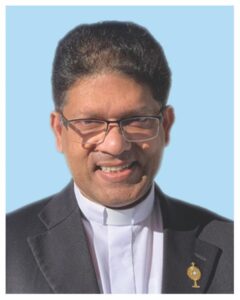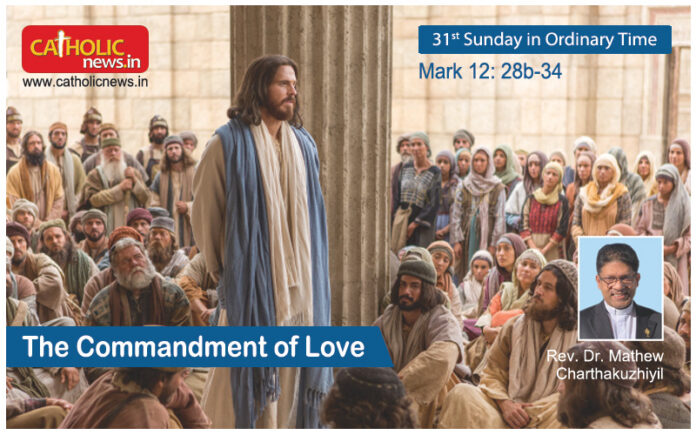
The reading from the Gospel today is considered to be the foundational principle of Christianity. “Which is the greatest of all the commandments?” How many times have we heard this question? We reflect on this theme regularly and still never get tired of hearing about the most important precept of Christianity. This is a two-fold commandment, which is the love of God and love of neighbor. It is also the summary of all the commandments described in the Sacred Scripture. This Sunday’s Gospel (Mk 12:28-34) offers us Jesus’ teaching on love and the need to center our Christian life around this principle.
We love God because we have a special relationship with him. We love God because he has created us in his image and likeness. We love God, since he has given us everything we need as a gift. We love God as he has loved us first and has sent his only Son to give us eternal life (Jn. 3:16). This is something like Saint John of Avila says: “…he who loves, gives himself with everything he has until he has nothing left to give”. When Jesus answers the question of the scribe on loving God, he uses four terms– the heart, the soul, the mind and the strength. It means that loving God demands a total commitment that calls for every ounce of our energy and our being.
The second part of the commandment is equally important, as our love for God is manifested through our love for fellow human beings (Cf.1 John 4:11, 20-21). Ordinarily, it is easy for us to love those who love us and all those who are dear to us. But the love envisioned by Jesus goes far beyond it. It includes not only loving our neighbors but also our enemies. It demands us to love even those who may not deserve our love, transcending our limitations. God dwells in pure hearts, and our love binds us to God and our fellow human beings. When we practice love, we can love all those who live on the margins of society. We can look at others as if we have the compassionate and loving eyes of God. That might allow us to accept the person as she or he is, with their merits and demerits.
The great Mayan King Jasaw Chan K’awiil lived in the present-day South American country of Guatemala in the 8th century A.D. He deeply loved his wife Lahan Unen Mo’. Their love is immortalized with the two monuments the king built for him and his wife. Their graveyards are inside two separate temples standing next to each other. Every day, the sun rises behind his temple and perfectly covers the temple of his wife with its shadow. In the afternoon, the setting sun perfectly bathes his temple with her shadow. How beautiful is this image that after 1,300 years, these two lovers still express their love by embracing each other every day even from their tombs!
How much more is the love of Jesus that he covers us with his embracing love every day? Even from the cross, he is extending his hands and telling us he loves us so much. In our ordinary life, we may have been rejected by someone whom we really loved. We also might have failed to love those who needed our love. But Jesus never rejects us or fails to love us. In return, now we also allow Jesus to take possession of our life. Let us ask Jesus to embrace us today with his love. Then, let us also embrace the rest of the world with that same love in transforming it for Christ.
Rev. Dr. Mathew Charthakuzhiyil



